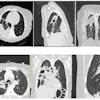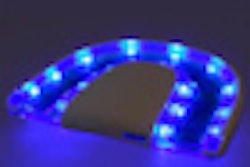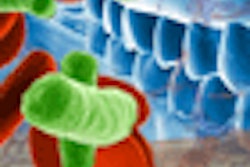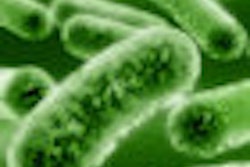A team of dentists and scientists from Newcastle University is developing a new product from a marine microbe to protect dentures, teeth, and periodontal tissue from oral bacteria.
They are using an enzyme isolated from a marine bacterium, Bacillus licheniformis, found on the surface of seaweed that they were originally researching for the purpose of cleaning the hulls of ships.
They presented their findings this week at the Society for Applied Microbiology Summer conference in Edinburgh, Scotland.
"Plaque on your teeth is made up of bacteria which join together to colonize an area in a bid to push out any potential competitors," explained Nicholas Jakubovics, PhD, of the School of Dental Sciences, in a press release. "Traditional toothpastes work by scrubbing off the plaque containing the bacteria, but that's not always effective, which is why people who religiously clean their teeth can still develop cavities."
When studying the marine bacterium Bacillus licheniformis, Newcastle University scientists led by Grant Burgess, PhD, found that when the bacteria want to move on, they release an enzyme that breaks down the external DNA.
"It's an amazing phenomenon," Burgess said. "The enzyme breaks up and removes the bacteria present in plaque and importantly, it can prevent the build up of plaque too."
The team's next step is to further test and develop the product and to collaborate with industry to commercialize it.



















